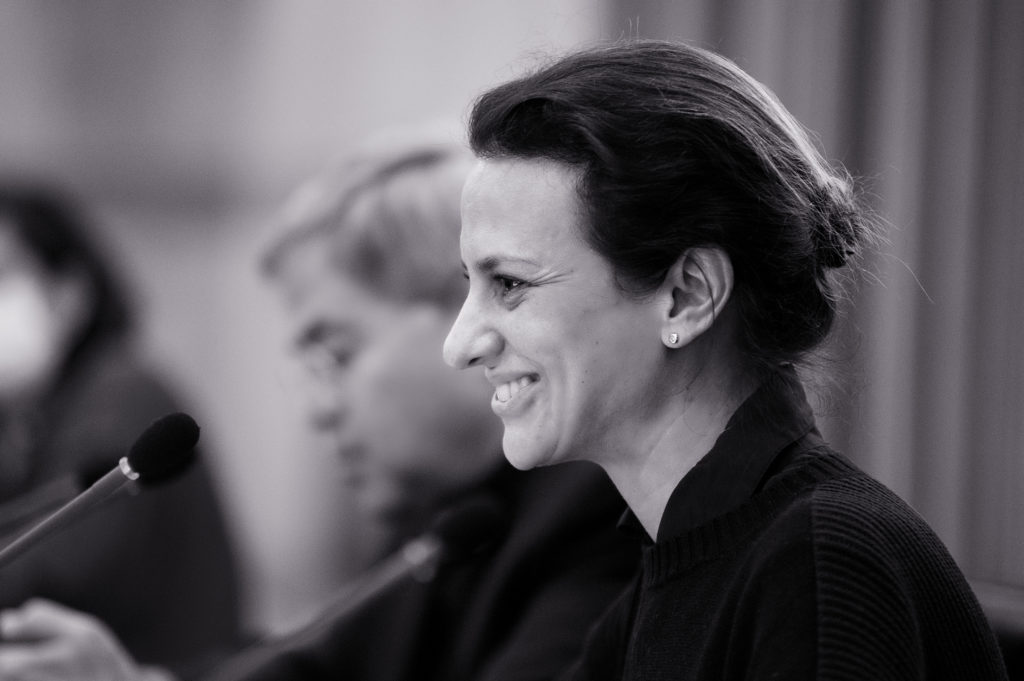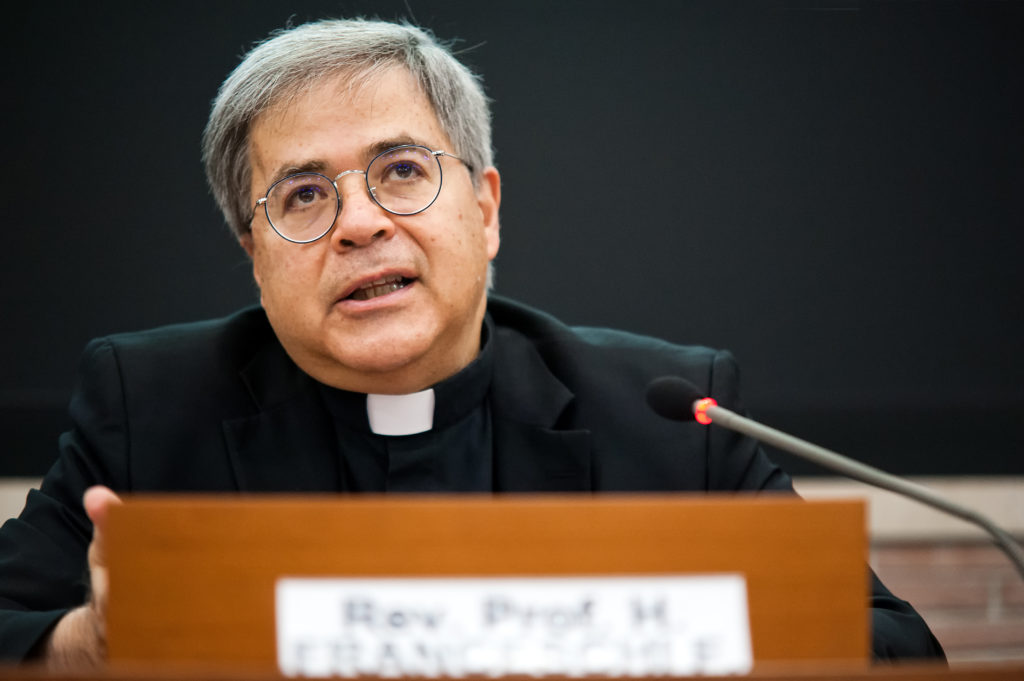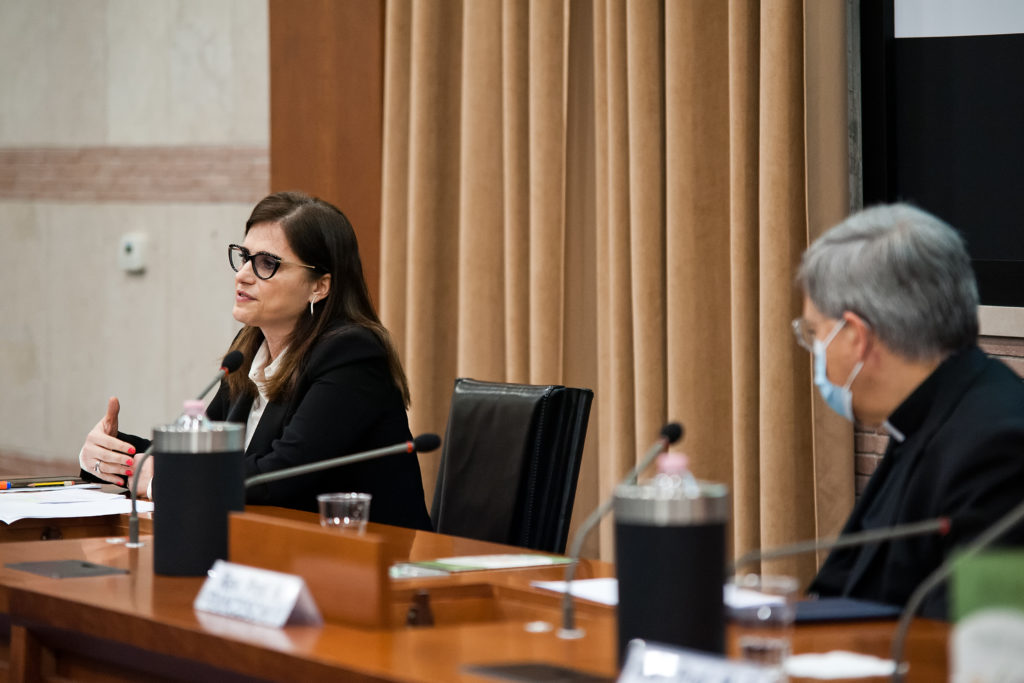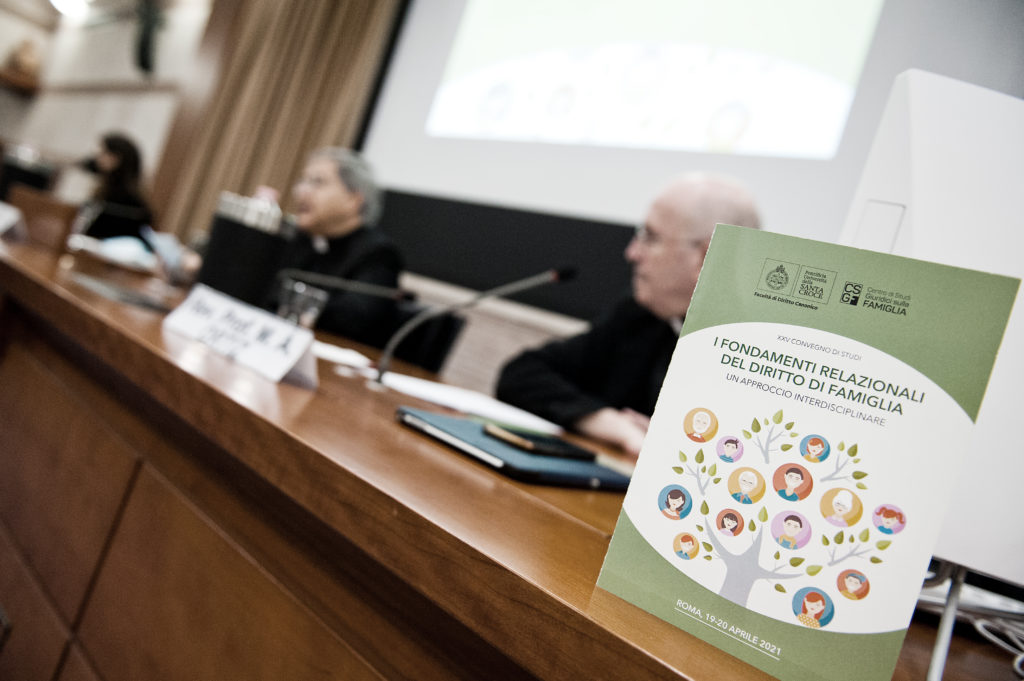




















The initiative was organized by the Center for Legal Studies on the Family of the Faculty of Canon Law of the Pontifical University of the Holy Cross in Rome, and was held on April 19 and 20 on the theme "The relational foundations of family law. An interdisciplinary approach".
More than two hundred people participated, connected by streaming from several countries, to listen to the interventions of important personalities from the academic and legal world. Some thirty papers were presented by the participants.
On the first day, Professor Susy Zanardo, from the European University of Rome, spoke on the anthropology of family relationships, giving an overview of the world of affection (myths and models) from historical epochs of the past to the present day.
The body of the word
The scholar's proposal was to relaunch "the male-female alliance for the care of the world," basing this perspective on Sacred Scripture. "Sexual difference is not simply accidental, because there is no relationship with the world that is not mediated by the body; but the body is never just organic," explained the moral philosopher; "it is the center of experience, the threshold between the visible and the invisible world, a sense of self and a structural tension towards the other. For this reason, the body "is always a body-word (logos): it is nothing without the word (logos), and yet it is the only place where the word manifests itself," he expressed with a beautiful image.
Generative subjectivity
From the Università Cattolica del Sacro Cuore Cuore Corazzo in Milan, Prof. Francesco Botturi spoke on the theme of the social subjectivity of the family. An apparently contradictory title, except to explain how human subjectivity is in substance a "generative subjectivity" since it needs "to be generated in order to come to itself" but also because once "mature and reconciled with itself" it becomes capable of "generating in its turn".
And it is here that the "anthropological centrality of the family" is grafted, according to the professor, "as an expression of the generative relational identity of man, in whose love takes shape the freedom of the I-you of the couple; the fidelity of the we of the stable relationship; the generation of the third as he/she/it/they".
Man and the family, image of God
The third presentation was given by Blanca Castilla de Cortázar, from the Madrid headquarters of the Pontifical Theological Institute for the Sciences of Marriage and the Family, who presented the theological aspect of family relationships, arriving at the synthesis expressed in the Trinity -also with the help of the Fathers of the Church and the Magisterium of St. John Paul II-, since the main family bonds (paternity, maternity, filiation) are all relational.


However, the professor pointed out, "it is necessary to make a correct use of analogy, with its similarities and differences, without pretending an exact symmetry, nor trying to project models of the family or human society on God". Rather, it is necessary to do the opposite: "to see how the image of God is realized in man and in the human family.
Inherently legal realities
Professor Carlos José Errázuriz, Professor of Canon Law at the Pontifical University of the Holy Cross, spoke of the "relationship between the family and the law", starting from the premise that the family, and above all marriage, which is its foundation, "are intrinsically juridical realities".
In this sense, it is necessary to rethink long-term action to "consolidate and promote" true family identity, through "social processes of recognition and promotion of the family founded on marriage", if only by drawing on the many experiences in which "this true sense of justice in family relationships is perceived and lived", at the heart of which is the person-man and person-woman being of the spouses in a relationship of mutual interpersonal love.
Going to the roots of being a marriage and family
Professor Hector Franceschi, director of the Center for Legal Studies on the Family and head of the Conference's organizing committee, illustrated family law in the Church in relation to other state systems. The speaker started from the awareness that, for some time now, "human identity has been relegated to an individualistic option, even changing over time". It is therefore necessary to rethink, "also from the point of view of juridical science," the importance of "male/female complementarity," particularly with regard to marriage.


Specifically, in the face of the difficulty of dialogue and the confusion that is often present in debates on these issues, Franceschi proposes rediscovering not so much a vision of "traditional marriage" as going to the roots of the "reality of being married and being a family." And thus rediscover "a common language in what, by nature, is common among human beings," including family relationships in their essential elements.
The individualistic vision over the social
Adriana Neri, a lawyer by profession, focused her speech on the problems of civil family law, including the fact that, after many legislative reforms - looking at Italy, for example - we have arrived at a different configuration of the family institution, "focused rather on the importance of the rights of the individuals" who compose it, unlike what happened in the past, when the family was conceived in its properly social function.
The solution to this drift, according to the jurist, may come from a rediscovery of the authentic social vision of the family which, although adapted to the evolution of the times, "preserves its function", which has always referred to the "pursuit of interests of general importance" that are in fact of interest to a State that declares itself to be social.


The relational assets of the family
The Conference concluded with a report by sociologist Pierpaolo Donati, of the University of Bologna, who spoke on the social genome of the family and its relational assets, starting from the human person as the "passive subject of the relationship".
In this context, "the family is a relational good and produces relational goods" - explained Donati - and from this it follows that "love is knowing how to generate what is different, to recognize it, to receive it and offer it as a gift, to live it as a gift".
The role assumed by the family itself in globalized society continues to be fundamentally one of "mediation", above all "to make personal and social virtues flourish". All this is certainly not helped by the continuous destructuring of the family institution "through the multiplication of juridical schemes", which on the one hand privatize it and on the other make it public. In fact, "family mediation is neither a private nor a public relationship, but a community one". And this is what the law is also called upon to rediscover, Donati concluded.












